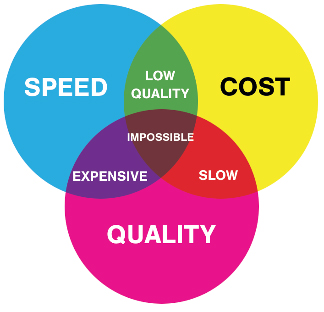-
7 Most Important Questions to Ask a Fabricator
By Jack Lollis, Larry Payne and Ed Young, Jr., Pipeline Equipment, Inc.

Exactly what type of fabricator are we talking about? In this case, a company that fabricates pressure piping or pressure vessels designed to ASME code. These are piping components welded together or mated using mechanical joints, such as flanges, pipe, roll and welded cylinders, reducers, elbows, tees, fabricated nozzles, valves, meters, filters and strainers. These may be provided as a subassembly or a completed assembly mounted on skid. Some of the completed fabricated products could include pig launchers and receivers, mainline valves, setting assembles, metering skids, filter units, separator units, multi-valve interconnects skids and regulator units. The process you use to select a fabricator can make or break your project. Choosing the right fabricator will ensure your project is on-time, on-budget and operates safely for many years. Choosing the wrong fabricator can cause delays, cost overruns and safety issues that must be avoided.
Here are some questions every company should ask before they choose a fabricator:
Question 1: Have you ever built this product before? Do you plan to build it yourself?
The fabricator’s experience in building your product is critical. You do not want this to be the first time the fabricator has built this product. If the answer is yes, then how many years’ experience does he have? The more the better. Secondly, are you going to
build it or sub-contract it to another fabricator? Don’t be surprised to find that many companies outsource their fabrication work.Question 2: What is your fabrication capability and capacity?
You need to know the size of the fabrication facility, the weights it can handle, and how many welders they have. If the facility cannot easily handle your product due to size and weight, or is limited by its number of production employees, chances are your project will be late and may not meet your specifications.Question 3: What qualifications do you have?
If you are looking for a quality fabrication company, you want to hear things like ASME Section VIII qualified and ISO 9000 qualified. These qualifications cover everything from material buying and handling, welder and weld procedure qualifications, testing and documentation.Question 4: Do you have an engineering staff and resident engineer?
The answer on both counts should be yes. If not, you will need to furnish drawings and ensure they are correct. The fabricator that maintains an engineering staff may save you money, already have a design available for you or offer enhancements of which you may not be aware. They can also furnish approval drawings, “as-built” drawings, and provide pressure calculations and certifications.Question 5: Can you provide a user’s list with references?
If the user’s list is short and you’re unfamiliar with the businesses, this should be a red flag. If the list is lengthy and includes well-known companies, then you probably have a quality fabricator that you can trust.Question 6: Can you provide in-house controls and instrumentation?
Some fabricators are just welders, while others that maintain engineering staff may be able to provide the design and instrumentation installation often required process vessels and skids. Some companies send this portion of a contract to a third-party, which can create delays and confusion over who is responsible.Question 7: Do you provide a complete data package?
You should receive a complete data package with your shipment. This should include:- Material Test Reports (MTRs) that document and confirm the materials furnished meet specifications.
- Weld procedures and qualifications documenting the procedures used and welder for each specific weld.
- Non-destructive test (NDT) records, which documents the procedure used to examine each weld.
- If instrumentation is furnished, the factory acceptance test (FAT) confirms all instrumentation is correctly installed and works as specified.
- As-built drawing to document the final configuration of the unit shipped.
- A final inspection report to certify the unit complies with specifications.
Data packages come in many formats. Some will be in large, three-ring binders and contain hard copies of all documentation. Some companies offer data packages electronically (CD, thumb drive, online, etc.), making it easier to maintain and store data. It also may be worth your time to visit the fabricator’s facility and meet the people who will be responsible for your project. There’s no substitute for seeing things for yourself. In many cases, touring a facility, seeing how it operates and meeting the people is the best
method to evaluate a fabricator. Additionally, there are three differentiating factors in every industry: quality, price and delivery. You have to decide which two are most important. So, evaluate carefully. It will save you time and money.Originally published in the Vol. No. 245 - Issue No. 12 of Pipeline & Gas Journal
« Return to News List

